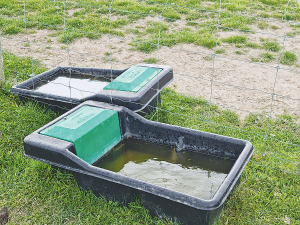More detail needed on Three Waters
The Government needs to give more detail on its Three Waters policy reset.
 Rural water schemes, which primarily provide water for agricultural purposes, may be able to be directly owned and operated by their users.
Rural water schemes, which primarily provide water for agricultural purposes, may be able to be directly owned and operated by their users.
Rural water schemes, which primarily provide water for agricultural purposes, may be able to be directly owned and operated by their users.
This would make them independent of one of the four big Water Services Entities (WSEs) that are proposed to take over running all the country’s water services under the Government’s controversial Three Waters Reforms.
Hamiora Bowkett, executive director of Three Waters Reform at the Department of Internal Affairs, says the recommendation to carve out rural mixed-use water schemes was made by the Rural Supplies Technical Working Group earlier this year. This recommendation has now gained government approval.
“This will require 75% of all users (farming and domestic) to agree to the proposal, and for the proposal to be informed by a robust assessment of factors associated with a scheme’s independent operation.”
Meanwhile, Bowkett says DIA officials, Clutha District Council and farmer representatives have agreed to establish a joint governance group to explore the costs, benefits and risks with user ownership versus WSE ownership of Clutha’s mixed use water schemes.
“DIA intends developing a sound methodology for the assessment of ownership options for mixed-use rural schemes that can be applied to schemes in other parts of New Zealand.”
Bowkett says this will then be used to inform the legislative mechanisms to be provided for in the second Water Services Entities Bill, expected to be introduced later this year.
Mating wrapped up last month at the across-breed Beef Progeny Test on Pāmu’s Kepler Farm in Manapouri.
Libby Judson is a keeper of memories from an age gone by. Tim Fulton tells her story.
A New Zealand-first native tree study has highlighted the Bioeconomy Science Institute's position as a forestry research leader.
Hemp fibre processor Rubisco is relocating its core processing facility to Ashburton as part of a $20-$30 million expansion to leverage what it says is an accelerating global demand for sustainable and renewable fibres.
Tradition meets some of the latest in technology at the 2026 East Coast Farming Expo.
OPINION: Trade Minister Todd McClay and the trade negotiator in government have presented Kiwis with an amazing gift for 2026 - a long awaited and critical free trade deal with India.